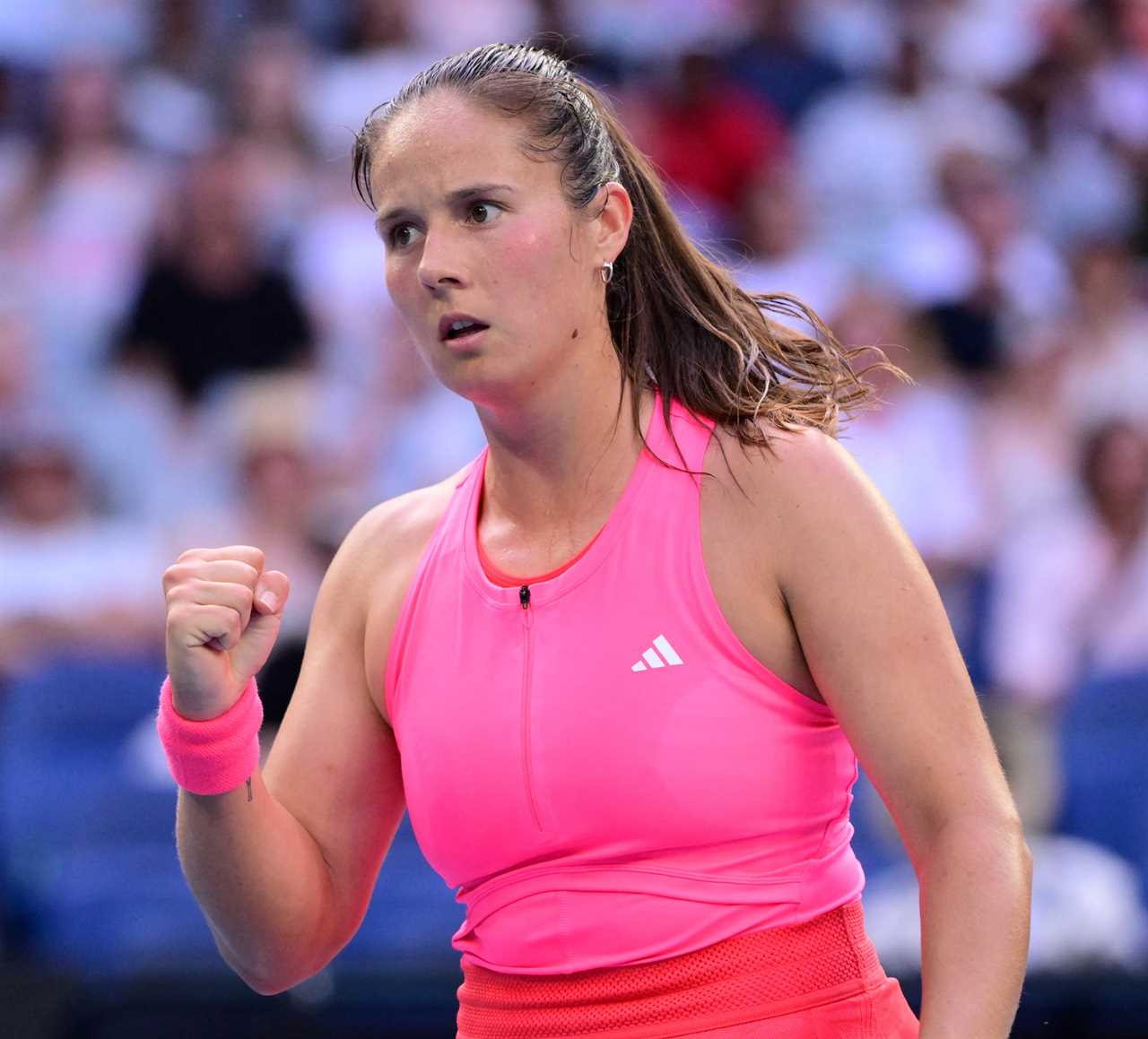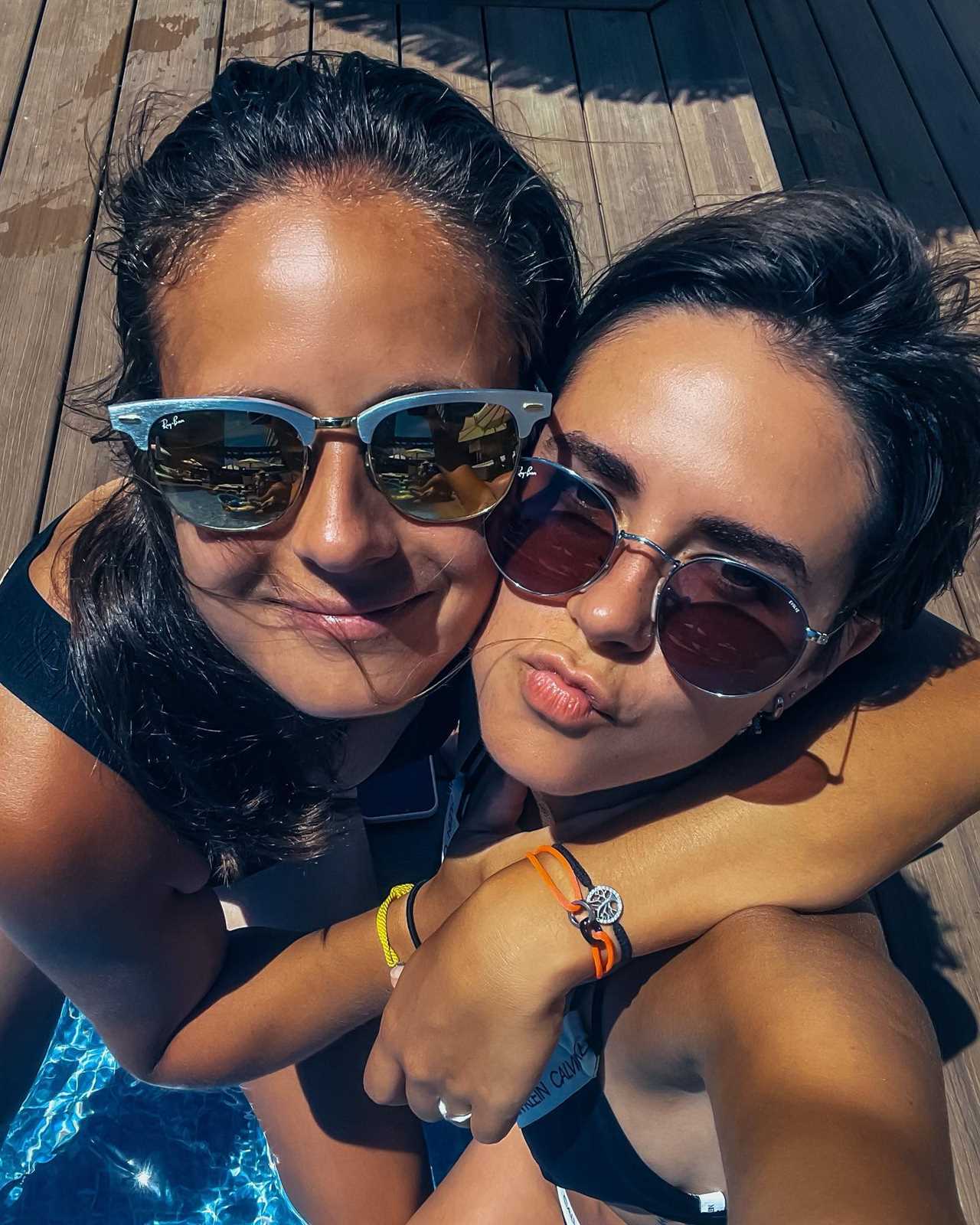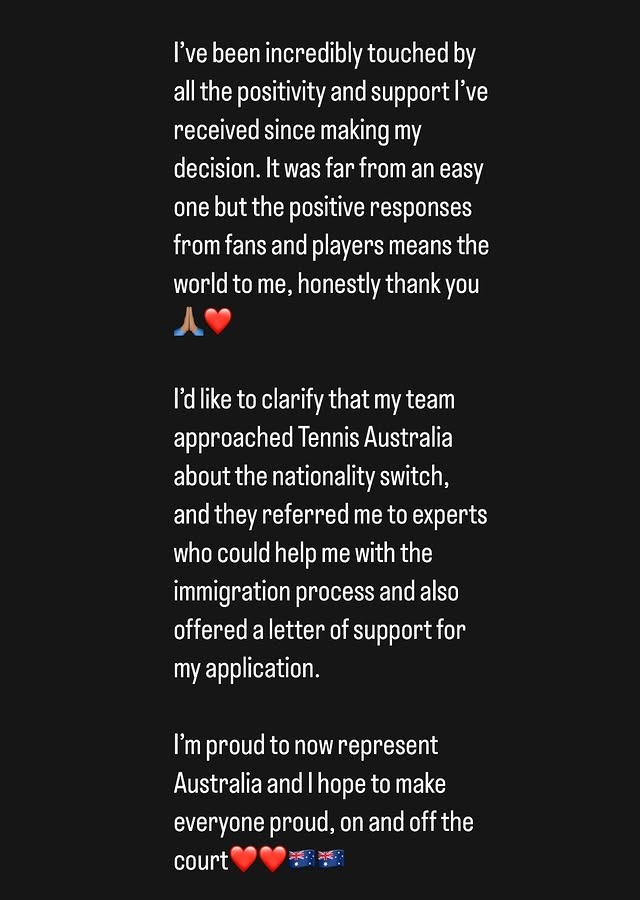
Audio Summary of the Article
A Bold Move for Personal Freedom
Russian-born tennis sensation Daria Kasatkina has made a significant life change by switching her nationality to Australian. The 27-year-old world No.12 made the decision after publicly coming out as gay and expressing strong opinions against Russia's LGBTQ+ laws and the ongoing conflict in Ukraine. This move marks a new chapter in her professional and personal life, distancing herself from her home country amidst mounting challenges.
Facing Hostility at Home
Kasatkina’s decision comes after enduring backlash in Russia for her stance on critical issues. Her open relationship with figure skater Natalia Zabiiako, which she revealed on social media in 2022, added to the pressures she faced. The Russian government’s refusal to accept diverse sexual orientations and its aggressive policies left Kasatkina feeling that she had no choice but to seek a safer and more accepting environment elsewhere.
Relocating for Acceptance and Support
Over the past two and a half years, Kasatkina has lived in Dubai and Spain, avoiding a return to Russia. Her move to Australia was solidified last week when she obtained permanent residency, allowing her to officially represent Australia in the Women’s Tennis Association (WTA). The approval was an emotional moment for Kasatkina, as she saw her ranking updated with the Australian flag next to her name.
Embracing a New Identity
In her first public statement as an Australian player, Kasatkina shared her mixed emotions. “Honestly, it feels different. I’m not going to lie. It’s emotional for me. I have to get used to it,” she said. Despite the challenges, she expressed joy at beginning this new chapter, highlighting the warm reception and support she has received from the Australian tennis community.

Support from Fellow Athletes
Kasatkina is not the first Russian athlete to make such a transition. Following in the footsteps of Daria Saville, who changed her nationality to Australia in 2015, Kasatkina received valuable advice and encouragement from Saville. This solidarity among athletes has provided her with the confidence to make a stand and prioritize her well-being and authenticity over national ties.
Standing Against Adversity
Her outspoken criticism of the Kremlin’s actions and the illegal war on Ukraine has not gone unnoticed. A Russian politician even attempted to label her as a “foreign agent,” though the effort was unsuccessful. Kasatkina remained steadfast, declaring, “Living in peace with yourself is the only thing that matters, and f*** everyone else.” Her courage to live authentically despite the risks underscores her commitment to her identity and values.
Looking Forward to New Challenges
With her new nationality, Kasatkina is set to compete under the Australian flag for the first time at this week’s Charleston Open in South Carolina. She aims to add to her eight career titles, the first of which was won in Charleston in 2017. Her move also aligns with trends among other athletes like Grand Slam champions Aryna Sabalenka and Elena Rybakina, who have recently changed their national affiliations for various personal and professional reasons.
Building a Home in Australia
Kasatkina expressed her excitement about making Melbourne her home, appreciating the strong support system available to athletes there. “I love being in Melbourne and look forward to making my home there,” she shared. Her positive outlook on her future in Australia highlights the welcoming environment she has found, contrasting sharply with the challenges she faced in her homeland.

A Heartfelt Thank You to Fans
Taking to Instagram, Kasatkina thanked her supporters for their overwhelming encouragement during this difficult transition. She described the decision as “far from easy” but emphasized how touched she feels by the backing she has received. As she prepares to represent Australia on the global stage, Kasatkina remains focused on her career and personal happiness, hoping her journey inspires others facing similar struggles.
Frequently Asked Questions
Can someone start playing tennis late and still become a professional?
It is possible to play tennis professionally at an older age, even though it may be more difficult. The success of an individual will be determined by their athletic ability, work ethics, dedication and the availability of quality coaching and competition. It may take longer for late starters to achieve professional levels, as their training will be intense and highly focused.
What role do mental and emotional aspects play in tennis training?
Tennis requires mental and psychological training as much as physical training. Players must learn stress management, how to maintain focus and how to deal with emotional highs and lowers during competition. Common techniques include visualization, goal setting, and mental rehearsals. A sports psychologist can assist players in building resilience, developing coping strategies to deal with pressure, and elevating their mental game so that it matches their physical prowess.
What is the importance of competing in junior tennis tournaments to pursue a professional career?
Junior tournaments are a vital step on the road to a tennis professional career. These tournaments provide young athletes with the opportunity to test their skills against their peers, gain valuable match experience, and learn to cope with the psychological demands of competitive play. These junior tournaments serve as a springboard to higher-level events and can impact a young athlete's ranking and visibility among coaches and sponsors.
How important is nutrition and diet to training as an elite tennis player
Tennis players are no different. Nutrition and diet is vital to any athlete who wants to perform at their best. Appropriate dietary intake supports intensive training by providing the necessary energy, facilitating recovery, and reducing the risk of injuries. The diet of an elite athlete is typically a mixture of carbohydrates and proteins with vitamins and essential minerals. Another important aspect is hydration, since maintaining a good fluid balance during play is essential to avoid fatigue and maintain focus.
At what age should a player begin training to have a chance at becoming a professional?
There is no specific age for beginning professional tennis training, but starting early gives you an advantage. Many professional players begin training between the ages of 4 and 7. Early development is crucial for players to develop a solid base of skills, coordination, and technique. It's important to balance the training with childhood development in order to foster a love for the sport without injury or burnout.
Statistics
- Strength and conditioning coaches emphasize core strength, noting that an increase in core stability can improve shot accuracy by up to 43%.
- On average, it's estimated that only 1 in 5000 high-level junior tennis players will develop into internationally ranked professionals.
- Engaging in structured video analysis sessions has been shown to improve a player's tactical decision-making by approximately 35%.
- Statistical trends indicate that top tennis players usually have at least 5 people in their support team, including coaches, fitness trainers, and physiotherapists.
- Studies show that superior agility and speed among tennis players can reduce their reaction time by up to 30%, which is crucial during high-level matches.
External Links
How To
How to increase endurance for long tennis games
To build endurance during long tennis matches, you need both anaerobic and aerobic training. Improve your aerobic capacity by adding longer, moderately intense cardio workouts to your routine. Add high-intensity interval training (HIIT) sessions to develop your anaerobic threshold and recovery time between intense rallies. On the court, simulate match conditions by practicing extended baseline rallies and engaging in practice matches that focus on consistency and prolonged points. Include exercises that target your core, as a strong core contributes significantly to endurance on the court. Be sure to focus on proper nutrition and recovery in order to maintain a high level of performance.
 CricketBoxingFormula 1GolfHorse RacingPremier LeagueTennisPrivacy PolicyTerms And Conditions
CricketBoxingFormula 1GolfHorse RacingPremier LeagueTennisPrivacy PolicyTerms And Conditions
